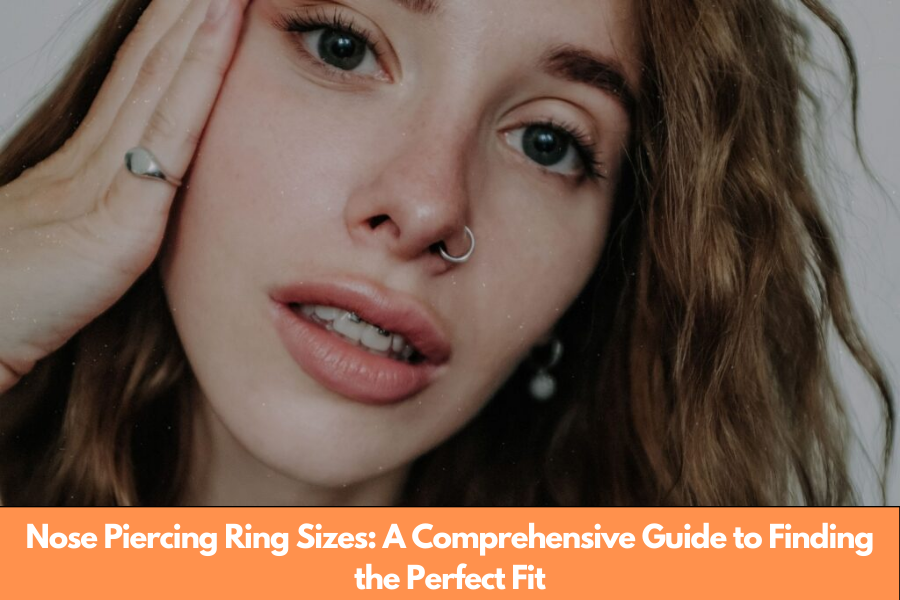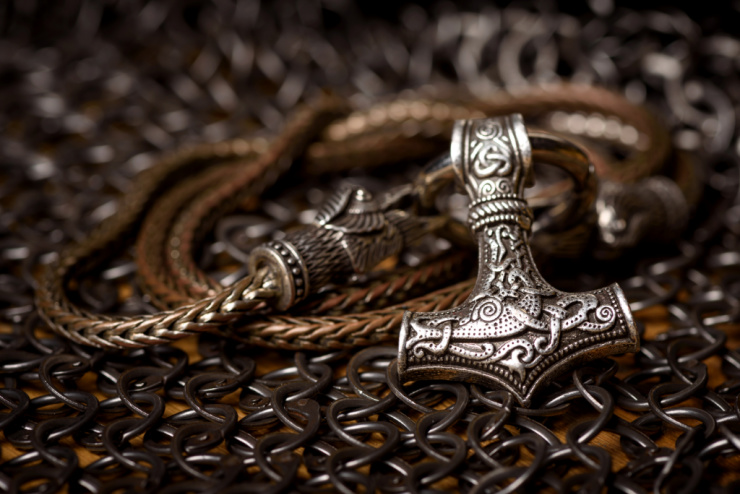Nose Piercing Ring Sizes: A Comprehensive Guide to Finding the Perfect Fit
In the world of nose piercings, selecting the right ring size is crucial for both comfort and style. Whether you’re new to the piercing scene or a seasoned enthusiast, understanding how to choose the perfect size for your nose ring can make all the difference. With numerous sizes, styles, and types of nose rings available, it can be overwhelming to find the one that suits you best. This comprehensive guide will help you navigate the various options and provide you with the knowledge needed to make an informed decision.
Understanding Common Gauge Sizes for Nose Rings and Diameter Measurements
When choosing a nose ring, two critical measurements come into play: gauge size and diameter.
Gauge Size: Gauge refers to the thickness of the nose ring. Nose rings typically range from 22G (0.6mm) to 14G (1.6mm), with 20G (0.8mm) being a common standard. The gauge size impacts both the appearance and the comfort of the nose ring. Lower gauge numbers represent thicker rings, while higher numbers indicate thinner rings.
Diameter Measurement: Diameter measures the distance across the ring, affecting how it fits in your nose. For nostril piercings, diameters usually range from 6mm to 10mm. A proper diameter ensures that the ring sits comfortably without being too tight or too loose.
Choosing the Right Gauge and Diameter: For a fresh piercing, starting with a slightly larger gauge (such as 24G or 22G) can be beneficial. This allows for a smooth healing process. Once healed, you can switch to a smaller gauge if desired. Always consult with a professional piercer to select the appropriate gauge and diameter for your piercing needs.
Standard Nose Ring Sizes
Different types of nose piercings require different standard sizes. Here’s a breakdown of common sizes for various types of nose piercings:
Nostril Piercings: For nostril piercings, 18G (1.0mm) and 20G (0.8mm) are the most common gauge sizes. The diameter typically ranges from 6mm to 10mm, depending on personal preference and the size of your nostril. These sizes are ideal for everyday wear and are widely available in various styles, including studs, hoops, and corkscrew rings.
Septum Piercings: Septum piercings, which go through the cartilage in the nose, usually require larger gauge sizes due to the thickness of the cartilage. The most common gauge sizes for septum piercings are 16G (1.2mm) and 14G (1.6mm), with diameters ranging from 8mm to 12mm. Septum rings often require a larger diameter to accommodate the natural positioning of the piercing.
Factors to Consider When Choosing Sizes for Nose Rings
Choosing the right size for your nose ring involves several key factors:
1. Style of the Ring: Different styles of nose rings require different sizes. For example, nose studs and hoops come in various sizes and can be customized to fit your preferences. Consider whether you prefer a subtle stud, an elegant hoop, or a unique corkscrew design when selecting your size.
2. Personal Comfort: Comfort is paramount when choosing a nose ring size. Some people prefer a snug fit, while others like a looser fit. Aim for a size that allows for comfortable movement without being too tight or too loose. Your nose ring should not cause any irritation or discomfort.
3. Healing Process: For new piercings, it’s advisable to start with a higher gauge size. This approach helps in the initial healing process. Once healed, you can opt for a smaller gauge if desired. Consulting with a professional piercer is always recommended to determine the best size for your specific healing needs.
4. Personal Style and Aesthetic: The size of your nose ring should complement your facial features and enhance your overall look. Whether you prefer a minimalist design or a bold statement piece, choose a size that aligns with your personal style and aesthetic preferences.
How to Determine Your Piercing Size
Accurate measurement is essential for finding the perfect fit for your nose piercing. Follow these steps to measure your nose piercing correctly:
1. Cleanliness: Begin by cleaning your hands and the area around your piercing with mild soap and warm water. This ensures accurate measurements and maintains hygiene.
2. Measuring: Use a sterile ruler or a caliper to measure the distance across your nose piercing. Place the ruler or caliper directly on the piercing and measure from one side to the other.
3. Record the Measurement: Note the measurement in millimeters. This measurement will help you determine the appropriate diameter for your nose ring.
4. Consult a Professional: If you’re unsure about the gauge size or have any doubts, consult with a professional piercer. They have the expertise to guide you in choosing the right size based on your specific needs.
Different Types of Nose Piercing Rings and Their Ideal Sizes
Nose rings come in various types, each with its own ideal size:
1. Nose Studs: Nose studs are popular for their simplicity and versatility. They typically feature a straight post with a decorative top. Ideal gauge sizes for nose studs are 20G (0.8mm) or 18G (1.0mm). The length of the post should fit comfortably in your nostril, with a standard length ranging from 6mm to 8mm.
2. Nose Hoops: Nose hoops, also known as captive bead rings, are a classic choice for those seeking a statement piece. They come in various sizes and designs, allowing for customization. Ideal gauge sizes for nose hoops are 20G (0.8mm) or 18G (1.0mm), with diameters ranging from 6mm to 10mm. An 8mm inner diameter is commonly used for standard nose hoops.
3. Corkscrew Nose Rings: Corkscrew nose rings, or L-shaped studs, are designed to stay securely in place. They feature a curved or bent post that follows the contour of the nostril. Ideal gauge sizes for corkscrew nose rings are 20G (0.8mm) or 18G (1.0mm), with lengths ranging from 6mm to 8mm.
4. Septum Rings: For septum piercings, the ideal gauge size is typically 16G (1.2mm) or 14G (1.6mm), with diameters ranging from 8mm to 12mm. These sizes accommodate the thicker cartilage in the septum.
Proper Care and Maintenance of Nose Piercing Rings
Once you’ve chosen the perfect size for your nose piercing, proper care is essential to ensure the longevity of your jewelry and the health of your piercing. Follow these care tips:
1. Regular Cleaning: Clean your nose piercing ring regularly with a saline solution or mild soap and warm water. Avoid harsh chemicals or alcohol-based solutions, as they can irritate the piercing.
2. Avoid Touching: Minimize touching or twisting the ring unnecessarily. If you need to adjust it, ensure your hands are clean and use gentle movements to avoid irritation.
3. Be Mindful of Activities: Be cautious with activities that may strain your nose piercing, such as swimming, contact sports, or sleeping on your face. Protect your piercing during these activities to prevent complications.
4. Avoid Changing Jewelry Too Soon: Allow your piercing to heal fully before changing the jewelry. Consult with a professional piercer to determine the appropriate time frame for switching your nose ring.
5. Seek Professional Help: If you experience discomfort, redness, swelling, or unusual discharge from your piercing, seek professional help promptly. These symptoms may indicate an infection or other complications requiring medical attention.
Conclusion: Perfect Fit for Your Nose Piercing
Finding the perfect fit for your nose piercing ring is crucial for both comfort and style. By understanding gauge and diameter measurements, considering factors such as style, comfort, and healing, and measuring your nose accurately, you can make an informed decision. Explore different types of nose rings and their ideal sizes to find the one that best suits your personal taste and enhances your overall look. With proper care and maintenance, your nose piercing will remain a beautiful and comfortable accessory.
Keep an eye for more latest news & updates on glamourtomorrow


